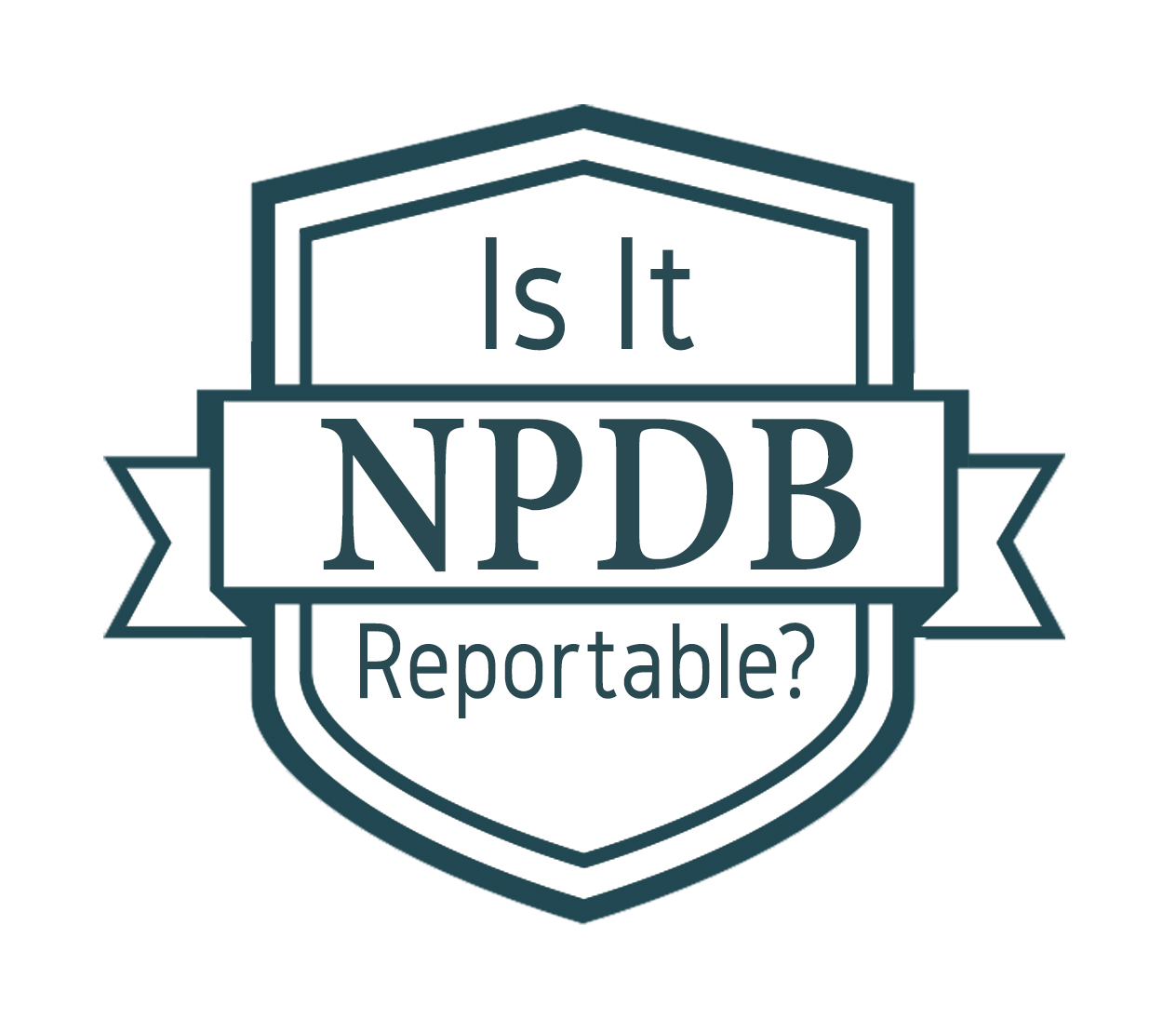NPDB Insights - June 2019

Is It Reportable?
If a physician's initial application for clinical privileges is denied or the privileges granted are more limited than those requested, must this be reported to the NPDB?
If the denial or limitation of privileges is the result of a professional review action and is related to the practitioner's professional competence or professional conduct, then the action must be reported. If the denial or limitation of privileges occurs solely because a practitioner does not meet a health care institution's established threshold criteria for that particular privilege (e.g., lacks the required number of clinical hours in a specialty), it should not be reported. The latter type of restriction or denial is not deemed the result of a professional review action relating to the practitioner's professional competence or professional conduct.
2019 Education Forum Recap

Luis Padilla, MD, FAAFP, Associate Administrator for Health Workforce at the Health Resources and Services Administration, welcomes attendees to the 2019 Education Forum.
On April 9th, we met with stakeholders to partner to protect patients at our 2019 Education Forum. Attendees traveled to Maryland from all over the United States to learn more about the NPDB. Participants representing state licensing boards, medical malpractice payers, federal organizations, hospitals, and other health care organizations were eager to learn and collaborate to solve reporting scenarios and discuss reporting requirements.
"I thought it was a great presentation overall," said Deborah Herman, Director of Medical Staff Services at McKenzie-Willamette Medical Center in Springfield, Oregon. Ms. Herman, along with many other attendees, provided feedback that the forum was informative, collaborative, useful, and a worthwhile opportunity.
We held sessions on the different types of reporting requirements for medical malpractice payments, clinical privileges actions, panel membership actions, other adjudicated actions, and state licensing board actions. We also presented overviews of the NPDB, querying, the Guidebook, and the website. Presentations from those sessions are available on our Education Forum page under "Agenda." The afternoon included interactive learning, where we presented reporting scenarios and asked each group to determine if the situation should or should not be reported. We were pleased to see our stakeholders work together to solve our reporting scenarios.
The Education Forum was a unique opportunity for participants to provide feedback on the NPDB and what innovations they would like to see in the future. We collected feedback across all sessions and then shared themes in our final group session on trending topics. Some of the issues we discussed with attendees at the forum include:
- Private agreements
- Proctoring
- Reporting clinical privileges actions taken against practitioners other than physicians and dentists
- Reporting enforcement
- Revising basis-for-action codes
- Investigations
- Continuous query vs. one-time query
- Federal agency reporting
We plan to address these topics in upcoming system updates and Insights issues.
Thank you for attending and making the forum a success! We appreciate everything our stakeholders do to make our mission of protecting patients possible! Visit the Education Forum page to view the presentations.
Has Your Organization's Information Changed Recently?

Has your organization had any recent acquisitions or corporate mergers? Was it acquired by, or did it acquire, another health care organization to form one new organization? If your organization is under new ownership or has undergone a merger, you can update your organization's information to ensure you don't lose access to your account data.
If your organization has been acquired or merged with another organization that is already registered, you may need to transfer your DBID to the new organization's account. If you determine that you need to deactivate your account, you can set up a successor account for your organization's DBID. This allows records from the old DBID to transfer over to the new account. If the DBID expires, you may lose access to your historical querying and reporting data.
To start this process, send a letter via email, fax, or mail on your company letterhead with the following information:
- Specify the DBID that needs to be deactivated and state your reason,
- The successor account's name and DBID, and
- Include the signature and contact information of your certifying official.
For additional information, visit the Guidebook, Chapter B and the Administrator Tools page.
The latest updates and resources are available at https://www.npdb.hrsa.gov.
Previous editions of NPDB Insights are available in our archive.
 An official website of the United States government.
An official website of the United States government.

